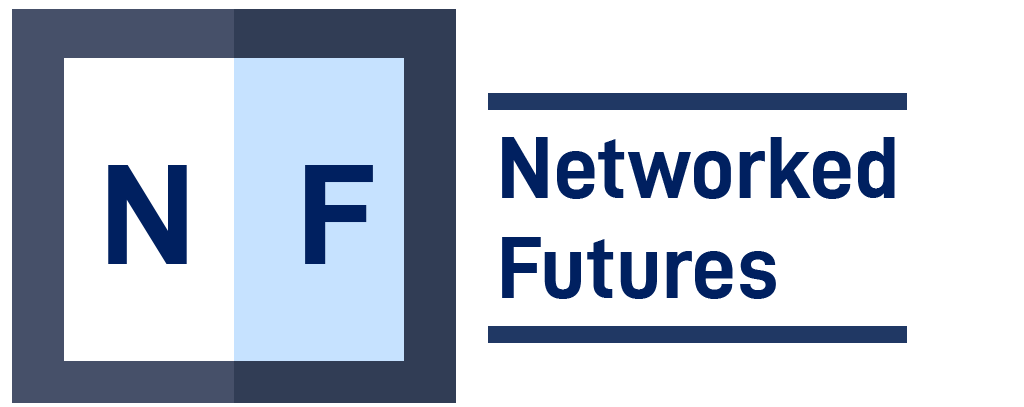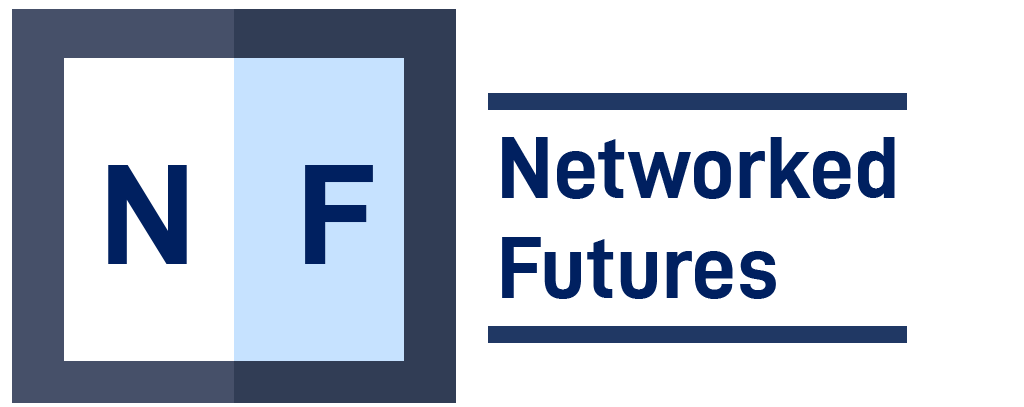About

Welcome to Networked Futures (NF): Setting a common agenda for our sustainable collective digital futures.
As we increasingly rely on digital technologies to navigate our social, political, and economic realities, NF is an effort to build a shared agenda for our sustainable collective yet diverse futures. We strive to make sense of this rapidly evolving digital paradigm, analyzing its impact on data, its underlying technological infrastructure, particularly artificial intelligence (AI), and the policy ecosystem that shapes them.
Why Networked Futures?
The last two decades witnessed an explosive surge in digitalization, bringing over five billion people online. Yet, a significant gap persists, leaving a couple of billions disconnected. While we grapple with this "digital divide," a clamor for breakneck technological acceleration echoes, particularly evident in the unprecedented pace of AI development.
We believe that the current platform business models and the enabling political economy are fueling the acceleration that is extractive in nature. The existing policy and governance environment is ill-equipped to achieve sustainable and justice oriented goals. To understand this dissonance between innovation economics and sociopolitical dynamics, NF dives deep into pressing challenges facing our society and planet.
Focus: NF’s idea is not aimed to predict the future of a deeply interconnected yet complex world. Rather, it's an endeavor to make sense of the unfolding digital transformation. Moreover, it is an effort to critically explore how various forces - technology, market, politics, and society - are shaping each other and the world we live in. For this newsletter, we have identified the following themes that we believe define the future path of this transformation:
- The Global AI Race and the Future of Sustainability: Recent evidence suggests digitalization and AI acceleration poses serious challenges to all aspects of sustainability. In this theme we critically explore the evolving political economy of extractive business models, situating the various policy and regulatory actions within the “global AI Race” paradigm. As part of the inaugural issue, we'll begin a series: How Sustainable are AI Policies? and evaluate different AI policy regimes - China, the USA and the EU - on their sustainability agenda.
- Openness, Digital Commons and Publics: Open sharing has emerged as one of the primary means to distribute AI resources and knowledge. This theme explores the dynamics of digital resource accessibility, commons-based governance models, and the management of digital public goods. Drawing from established digital rights frameworks, we examine strategies to balance the benefits of open access against the growing concentration of power in AI development and deployment. This analysis aims to address the inherent tensions between democratizing AI technology and preventing its monopolistic control.
- Future of Work and Mobility: As we anticipate continued flexibilization of work, employment arrangements and labor standards, facilitated by advances in technology, mobility becomes a keyword defining our existance. However, unlike the pervasive imaginary of gracious fluidity of humans, non-humans and extra-human entities, mobility is a socio-cultural (and often messy) assemblage, embedded within a hierarchized global order. Under this theme, we examine how the current mobility regimes celebrate some forms of mobility while increasingly restricting and penalizing the rest.
Beyond simply analyzing these issues, we aim to present the practices, processes and policies at work and elucidate how they shape structural, instrumental and discursive power at the intersection of digital technologies, society, markets, and politics. We also propose policy pathways and levers of change based on the research and collaboratively build insights by engaging with a wide variety of stakeholders. We envision NF as a platform for an informed public discourse, shaping a collective agenda for a sustainable future.
Join us on this exploration! In the coming weeks and months, we invite you to engage with our analysis and potential policy pathways to chart a shared open and sustainable future.

Sreekanth is Initiator of Networked Futures and a critical Tech/AI policy researcher focusing on political economy of digital technologies in the contested contexts. He has worked for 20 years in different capacities including in the leadership, advisory and research positions across corporate, non-profit and academic settings. Currently, Sreekanth is working on his doctoral research project, on the global AI race and its impact on the global south, at the institute of political science at the Universität Duisburg-Essen, Germany.

Sanam is co-initiator of Netwroked Futures and an established academic whose research focuses on social-spatial mobility linkages, embodied migration infrastructures and transnational digital mobilization. She has been awarded various grants and fellowships, including the DFG fellowship, SSHRC Insights Development Grant, Alexander von Humboldt Fellowship, Marie Curie COFUND Fellowship, SSRC InterAsia Fellowship and a visiting fellowship at the University of Sussex. Sanam has also held teaching positions both in Indian and German universities. Currently she serves as the co-editor in chief of Comparative Migration Studies.
Reach us: futuresnetworked@gmail.com
Subscribe now!

